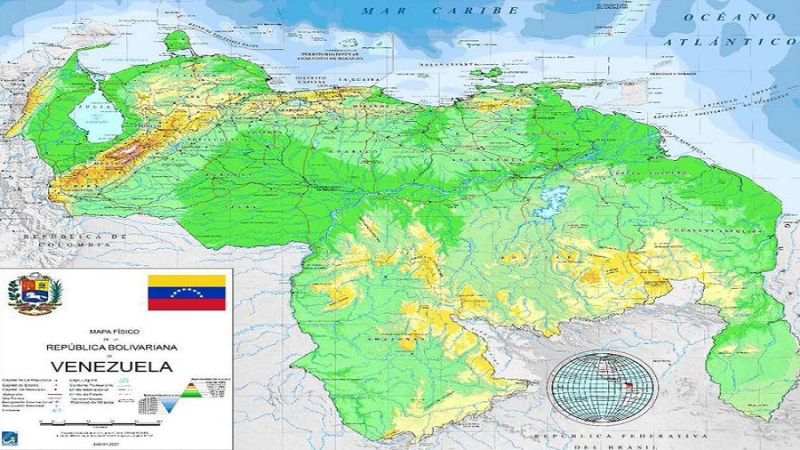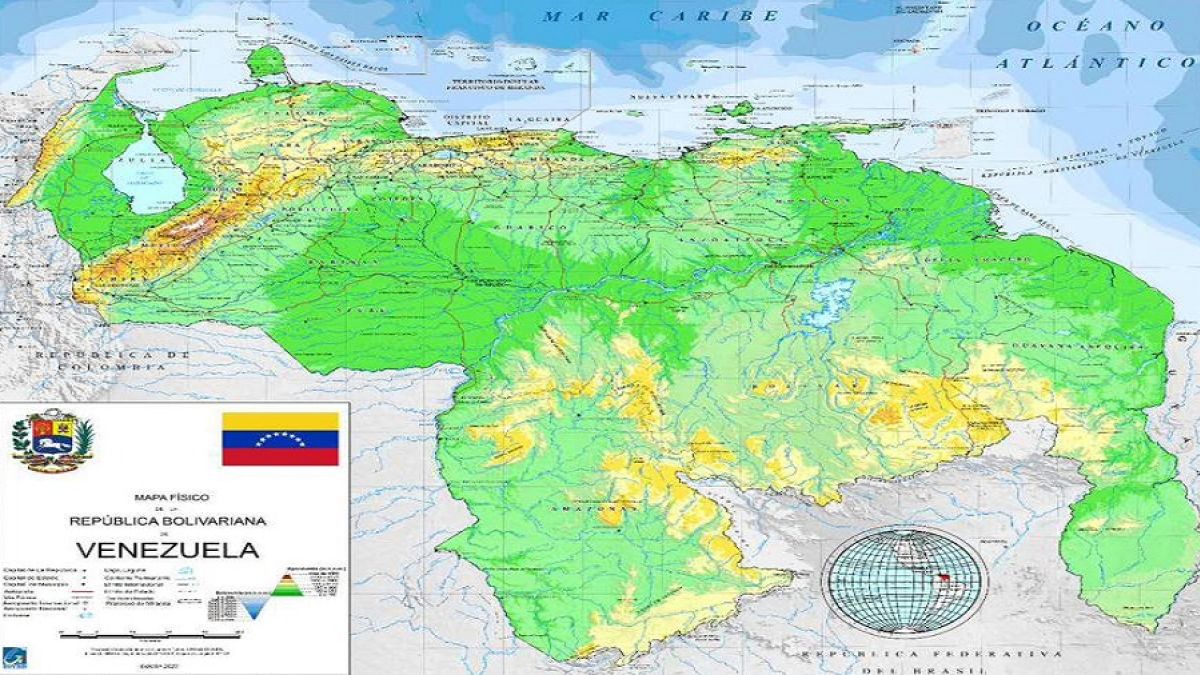The constant defense of our sovereignty


Internet

Published at: 08/12/2023 11:53 AM
Five centuries have passed since Christopher Columbus arrived in America and it is still fighting incessantly to maintain its sovereignty and independence from European and American empires; today we see how Spain, the United Kingdom and the United States continue in their colonial pretensions to steal wealth and territory from our Peoples; for this reason, once again, the Homeland calls us to defend our sovereignty.
If we review sovereignty
as a concept, we find that it is a democratic practice in which the power of their
territory is granted to the population, who apply that power through
delegation to representative bodies and institutions.
Now, the exercise of
sovereignty in the Bolivarian Republic of Venezuela
is participatory and leading, because, as expressed in its Constitution, it offers full power to the
citizens of the country, and in this way the population is in charge of decision-making and the composition
of the organs of power, with a certain voluntary degree
of representation.
We can review this in
its article 5, which reads: “Sovereignty resides non-transferably in
the people, who exercise it directly in the manner provided for in this
Constitution and in the law, and indirectly, through suffrage, by the bodies that exercise public power.
The organs of the State emanate from popular
sovereignty and are subject to it.”
According to this,
sovereignty refers to the exercise of authority in a certain territory and this
authority falls to the people and although people do not carry out a direct exercise
of it, but rather delegate that power to their representatives, it is a power of total
competence. This principle points out that the Constitution of the Bolivarian Republic of Venezuela is the foundation or the
main basis of our legal system, so there is no rule that is
above it.
However, the insistence of empires to occupy us is intended to violate not only the domestic legal norm, but also international law; it is not only with our country, we have a close example with the case of the Falkland Islands in Argentina, which the British Crown has been occupying illegally for 190 years.
And in this case, the
behavior of international organizations has been just as weak
with respect to the interests of Peoples, since the United
Nations (UN), until now, only invites us to resolve the dispute without
other actions to put an end to the occupation.
However, during the
revision of the concepts of sovereignty and independence, and the need for
them to be protected by the People, we bring the thinker Emmanuel Joseph Sieyès, known as the Count of Sieyès (1748-1836), who was one of the inspirers of the French
Revolution and who paid special attention to the social problems of his
time and explained that “The people have two dimensions: It is, on the one hand, the aggregation of all and
each of the individuals in a society, which
constitutes, in short, nothing more than a group of individuals, but when that
group of individuals (the people) has a political unity,
we can no longer speak of a people, but rather we must speak of the people as a
political community”.
In this way, seen
then as a political community, the attribution of ownership of
sovereignty resides with the people and whoever they choose or designate for their defense.
Later, Sieyès adds that “on the other hand, what is the people as a political community must
be addressed? It will then be the
people's decision to form a political unit that must be accompanied by the fact of forming
a cultural unit. What characterizes the people as a political unit is the
bond that is sustained by the common decision to live together and to
take part both in the successes and benefits, and in the responsibilities and failures of
building their democracy”.
It is then that we see the political
community as a unit, which is not something different from the people, it is the
people themselves in their political unity; Sieyès
explained this through an analogy: “the orchestra is a group of musicians, the added
musicians make an ensemble of musicians, only the will of the musicians to remain and act with unity makes them able to form an orchestra”.
It is then that, in the
words of Sieyès, it can be explained
that “no matter what way the nation wants; as long as it wants, all
forms are good”, the Venezuelan people conceived as a
political community, on December 3rd in the exercise of their sovereignty and participated
in a Consultative Referendum to
express their position, through the vote, regarding the actions to be taken for
the early resolution of the dispute and recovery of Guiana Essequiba.
Due to the acceptance of
97% of the proposals planned in the referendum, the president of the
Bolivarian Republic of Venezuela, Nicolás Maduro Moros, announced nine strategic
actions to execute the decisions approved by the
Venezuelan people in defense of historical rights over the Essequibo.
Among the decisions
taken, there was the activation of the debate in the National Assembly (AN) of
the Organic Law for the Defense of
Guiana Esequiba for discussion and
approval as a legal instrument that allows the creation of the new state and the
execution of the actions approved by the people in the consultative referendum last Sunday.
Thus, in the words of
Deputy Diosdado Cabello, last
Tuesday, December 5, in the National Assembly during the preparation of the
explanatory memorandum of the bill, he reiterated that “we are not
declaring war on anyone, but we have said it a thousand times and we are
acting in accordance with the Law and our Constitution to ensure that from
our territory, no one will take away an inch, not half a centimeter
even”.
This is why it can be said
that the principle of sovereignty is that it belongs to the people. The people,
in their unity, are the ones who exercise it, being then a political community that
decided to forge its own destiny.